3720 Spectrum Blvd., Suite 125, Tampa, FL 33612
3720 Spectrum Blvd., Suite 125, Tampa, FL 33612
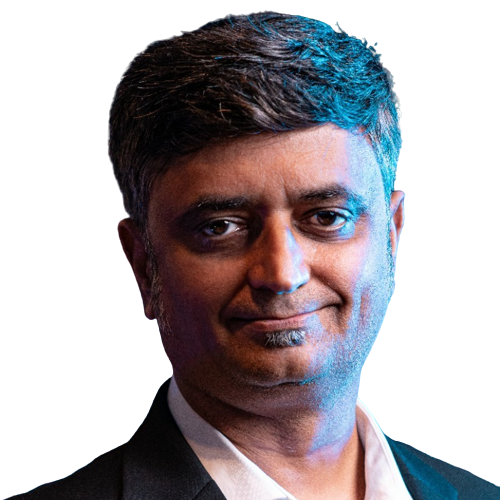
Ph.D.
Chairman/CEO
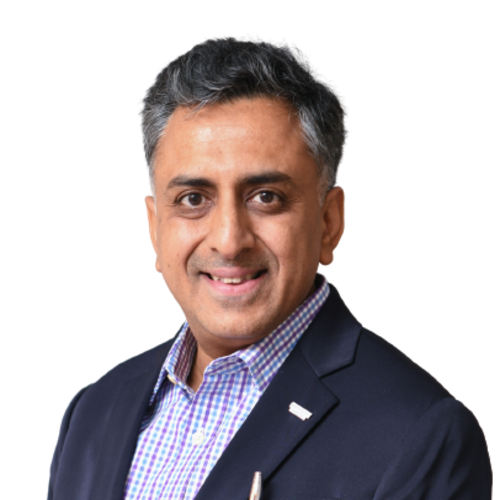
BE, MBA
Chief Operating Officer
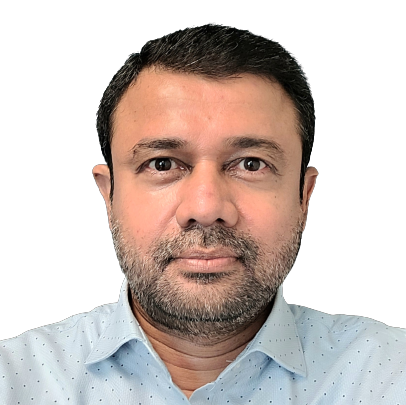
Ph.D.
Vice President R&D
Dr. Pranav Patel is a highly experienced scientist who leads the SGN R&D team and brings over 25 years of extensive R&D experience in the pharmaceutical industry, spanning several domains such as synthetic chemistry, formulation sciences, analytical sciences, and GMP manufacturing. He has a strong track record, leading the successful development of numerous pharmaceutical products that have obtained marketing approval from the US Food and Drug Administration (FDA). Dr. Patel holds a Ph.D. in Medicinal Chemistry from the Florida Institute of Technology, under the mentorship of Dr. Joshua Rokach, a well-renowned Isoprostanes & Prostaglandins pioneer (former President, Merck & Co., who led the discovery of the asthma drug “Singulair”).
Dr. Patel’s contributions and achievements in pharmaceutical research and development have positioned him as a knowledgeable and respected professional in the industry. Currently, he is also a Collaborative Professor, Dept. of Molecular Medicine, Morsani College of Medicine, University of South Florida Health; Assistant Professor, Affiliate, Dept. of Pharmaceutical Sciences, USF college of Pharmacy and, a Committee Member, Industry Advisory Council (IAC), USF Health. Through his expertise and dedication, Dr. Patel continues to make significant contributions to advancing healthcare and improving patient outcomes.
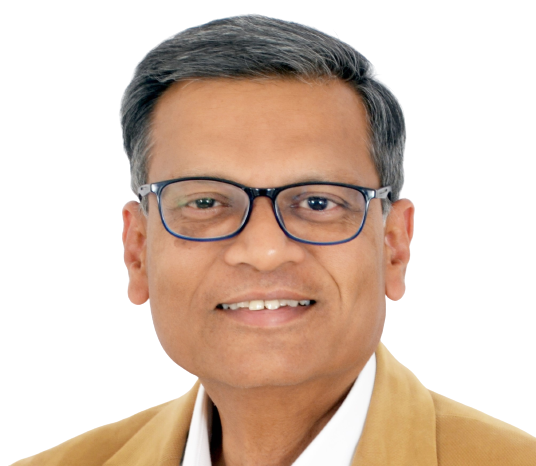
M.D., DM.
Clinical Development & Regulatory Consultant

Ph.D.
Chairman/CEO
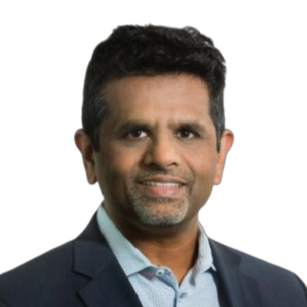
Sc.D., MBA
Dr. Rahul Singhvi is a global leader in the life sciences industry and serves as the Chief Executive Officer of National Resilience, Inc.
Most recently, Dr. Singhvi was an Operating Partner at Flagship Pioneering, a Boston-based life sciences innovation firm, where he was responsible for founding and operating companies launched from Flagship’s innovation foundry, Flagship Labs. Before joining Flagship, Singhvi was the Chief Operating Officer of Takeda’s vaccine business unit, where he was responsible for worldwide vaccine CMC and manufacturing operations. Before Takeda, Dr. Singhvi was President and CEO of Novavax, Inc., where he transformed the company from a specialty pharmaceutical business to a vaccine development company. His professional career began at Merck & Co in 1994, where he held several positions in R&D and manufacturing.
Dr. Singhvi serves on the Executive Advisory Board of the Leonard Davis Institute of Health Economics at the University of Pennsylvania and on the Scientific Advisory Board of the anti-microbial resistance research group at the Singapore MIT Advance Research and Technology program. He is a mentor instructor in the Undergraduate Projects Opportunity Program at MIT and is a visiting lecturer at the University College London.
Dr. Singhvi graduated as the top ranked chemical engineer from the Indian Institute of Technology, Kanpur, India, and earned both his M.S. and Sc.D. chemical engineering degrees from MIT. He received an MBA from the Wharton School of the University of Pennsylvania, where he graduated as a Palmer Scholar.
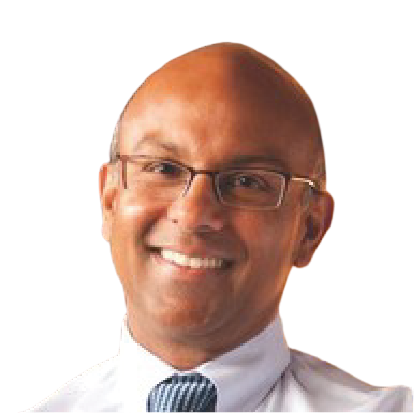
M.D.
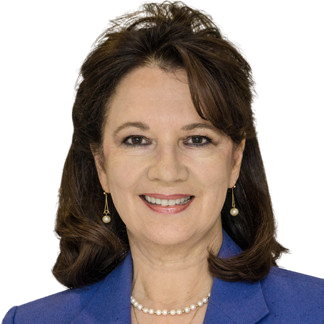
Ph.D., MBA
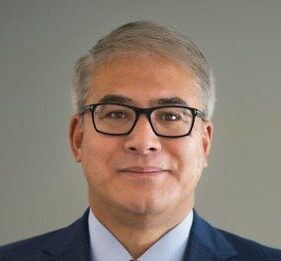
Dr. Kaiser is a major contributor to the medical literature, having authored several ophthalmology texts and more than 200 book chapters, original reports, electronic publications, and abstracts. He is an associate editor of the American Journal of Ophthalmology and serves on the editorial boards of Retina, Retina Today, Retinal Physician, and Ocular Surgery News.
Dr. Kaiser has been recognized by the American Academy of Ophthalmology and the American Society of Retina Specialists with Achievement and Senior Achievement Awards. He is listed in the “Best Doctors in America” list.
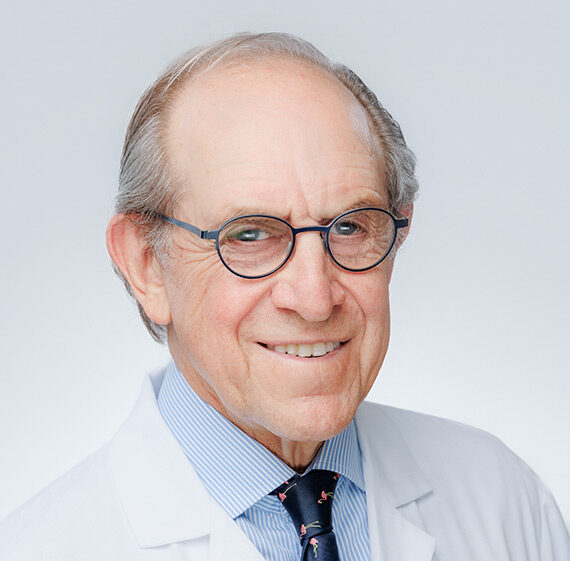
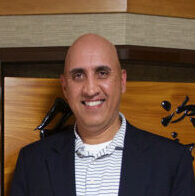
Dr. Choudhri frequently participates in educating other spine surgeons at national/international conferences. He is active in leading Neurosurgical and Spine organizations and has been a member of the Executive Committee of the Joint Section on Disorders of the Spine and Peripheral Nerves and the Joint Section on Neurotrauma. He has served on national multispecialty committees that developed and published guidelines for lumbar and cervical spine surgery.
Dr. Choudhri has been selected for inclusion in numerous “best doctor” lists including the AAPI top doctors (2023), Castle Connolly Top Doctors and NY Metro Top Doctors (2013-2023), Best Doctors in America (2007-2008), Montclair Who’s Who in Healthcare (2008-2009), and New York Super Doctors (2009).
Dr. Choudhri’s research interests focus on spinal injury, cervical spinal disorders, minimally-invasive techniques, and improving outcome from spine surgery and diagnosis of mild traumatic brain injury (mTBI) including concussions and subconcusive injuries.
Dr. Choudhri is a collaborating consultant for Concussion Management of New York and a member of the Mount Sinai Play Safe Program, which provides multidisciplinary care to injured athletes and technical assistance, as well as education to families and school personnel.
Dr. Choudhri is an investor in SGN.
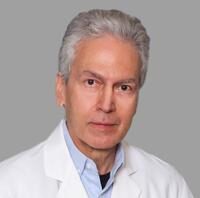
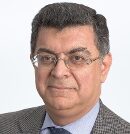
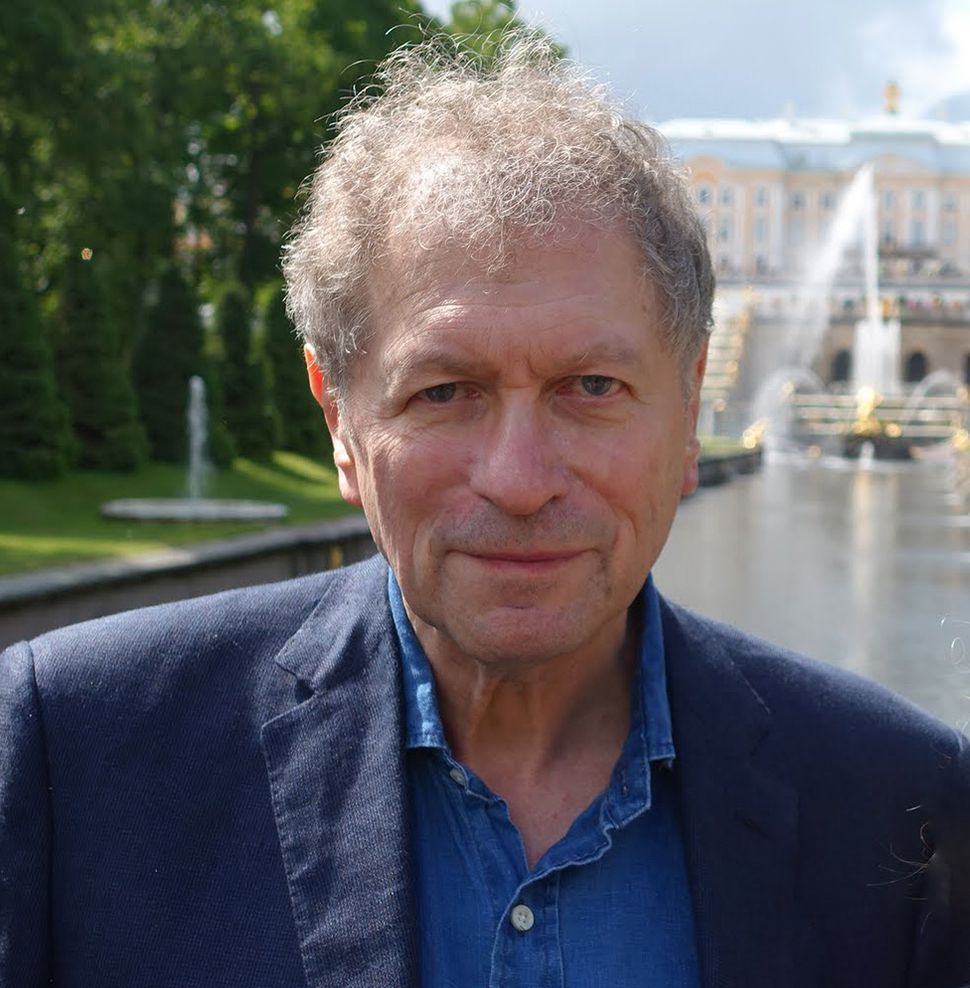
Dr. Stuart A. Newman is a leading theoretical biologist and a Professor of Cell biology & Anatomy at New York Medical College, Valhalla, New York. His early scientific training was in chemistry (A.B., Columbia, Ph.D., University of Chicago), but he moved into biology, both experimental and theoretical. He has contributed to several fields, including biophysical chemistry, embryonic morphogenesis, and evolutionary theory. His theoretical work includes a mechanism for patterning of the vertebrate limb skeleton based on the physics of self-organizing systems, and a physico-genetic framework for understanding the origination of animal body plans. His experimental work includes the characterization of the biophysical process of “matrix-driven translocation” of cells.
Dr. Newman has also written on ethical and societal issues related to research in developmental biology and was a founding member of the Council for Responsible Genetics (Cambridge, Mass.). He is an external faculty member of the Konrad Lorenz Institute, Klosterneuburg, Austria, and editor of the institute’s journal Biological Theory. He is group leader of an international project, “Cellular Agency: Recruitment, Integration, and Reemergence in Multicellular Development and Cancer,” supported by the John Templeton Foundation’s Science of Purpose Initiative, which is integrating the work of experimental and theoretical investigators, and philosophers of science, at institutions in the U.S., India, and Mexico.
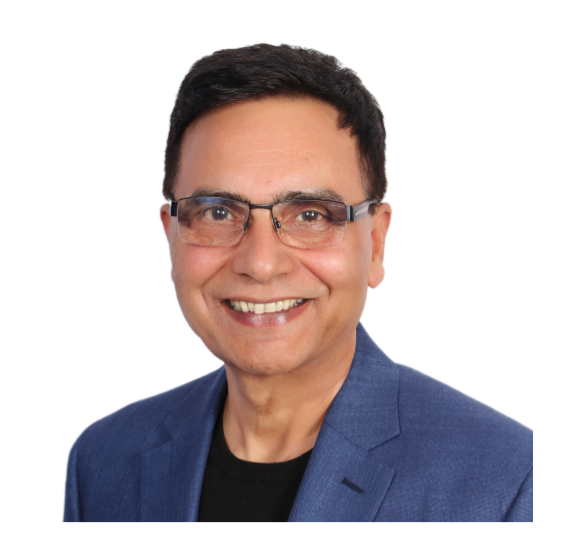
Dr. Khanna holds a Doctoral Degree in Biochemistry from All India Institute of Medical Sciences (AIIMS), New Delhi. He was an Alberta Heritage Foundation Fellow at University of Calgary, Canada. He worked as a Post-Graduate Research Biologist at the Centre for Molecular Genetics, University of California San Diego (UCSD), and later as a Research Assistant Professor at University of California Irvine (UCI). He retired as Arturo Falaschi Emeritus Scientist from the International Centre for Genetic Engineering and Biotechnology (ICGEB) New Delhi, in December 2022. For over 30 years, Dr. Khanna has been working on genetically engineered bio-molecules of medical use at ICGEB, New Delhi.
The “know-how” developed by his team at ICGEB has resulted in the successful commercialization of over 20 diagnostic kits, including point-of-care tests for viral infections like Dengue, HIV, HCV, and HBV. The World Health Organization purchases these highly affordable and high-performing diagnostic kits for their programs in several developing countries.
During his stay at ICGEB, his team’s research outcome has resulted in the signing of 2 exclusive commercial agreements between ICGEB and Sun Pharma for the clinical development of the world’s first botanical drug against dengue and a yeast-based dengue subunit vaccine candidate for global use.
Dr Khanna is a recipient of several awards and honors, including the Anjani Mashelkar innovation award, the Organization of Pharmaceutical Producers of India’s Scientist Award, the Om Prakash Bhasin Foundation Award, the Ranbaxy Research Award, the Biotech Commercialization Award of the Department of Bioecology, and VASVIK Industrial Research Award. Dr Khanna was honored with “Padma Shri” award by the Republic of India, for his successful translational efforts.
Dr Khanna is a Fellow of all 3 Science Academies of India. He was an adjunct professor at the School of Medicine, Emory University, Atlanta, USA, an adjunct faculty at Translational Health and Technology Institute, Faridabad and an adjunct professor at the Institute of Advanced Virology, Kerala, India. He has been a research council advisor to several national institutes. Dr Khanna is a member of India’s National Technical Advisory Group on Immunizations.
Dr Khanna’s current interests remain focused on the development of safe, affordable, and effective therapeutics and vaccines for emerging nations.

Dr. Kaiser is a major contributor to the medical literature, having authored several ophthalmology texts and more than 200 book chapters, original reports, electronic publications, and abstracts. He is an associate editor of the American Journal of Ophthalmology and serves on the editorial boards of Retina, Retina Today, Retinal Physician, and Ocular Surgery News.
Dr. Kaiser has been recognized by the American Academy of Ophthalmology and the American Society of Retina Specialists with Achievement and Senior Achievement Awards. He is listed in the “Best Doctors in America” list.


Dr. Choudhri frequently participates in educating other spine surgeons at national/international conferences. He is active in leading Neurosurgical and Spine organizations and has been a member of the Executive Committee of the Joint Section on Disorders of the Spine and Peripheral Nerves and the Joint Section on Neurotrauma. He has served on national multispecialty committees that developed and published guidelines for lumbar and cervical spine surgery.
Dr. Choudhri has been selected for inclusion in numerous “best doctor” lists including the AAPI top doctors (2023), Castle Connolly Top Doctors and NY Metro Top Doctors (2013-2023), Best Doctors in America (2007-2008), Montclair Who’s Who in Healthcare (2008-2009), and New York Super Doctors (2009).
Dr. Choudhri’s research interests focus on spinal injury, cervical spinal disorders, minimally-invasive techniques, and improving outcome from spine surgery and diagnosis of mild traumatic brain injury (mTBI) including concussions and subconcusive injuries.
Dr. Choudhri is a collaborating consultant for Concussion Management of New York and a member of the Mount Sinai Play Safe Program, which provides multidisciplinary care to injured athletes and technical assistance, as well as education to families and school personnel.
Dr. Choudhri is an investor in SGN.



Dr. Stuart A. Newman is a leading theoretical biologist and a Professor of Cell biology & Anatomy at New York Medical College, Valhalla, New York. His early scientific training was in chemistry (A.B., Columbia, Ph.D., University of Chicago), but he moved into biology, both experimental and theoretical. He has contributed to several fields, including biophysical chemistry, embryonic morphogenesis, and evolutionary theory. His theoretical work includes a mechanism for patterning of the vertebrate limb skeleton based on the physics of self-organizing systems, and a physico-genetic framework for understanding the origination of animal body plans. His experimental work includes the characterization of the biophysical process of “matrix-driven translocation” of cells.
Dr. Newman has also written on ethical and societal issues related to research in developmental biology and was a founding member of the Council for Responsible Genetics (Cambridge, Mass.). He is an external faculty member of the Konrad Lorenz Institute, Klosterneuburg, Austria, and editor of the institute’s journal Biological Theory. He is group leader of an international project, “Cellular Agency: Recruitment, Integration, and Reemergence in Multicellular Development and Cancer,” supported by the John Templeton Foundation’s Science of Purpose Initiative, which is integrating the work of experimental and theoretical investigators, and philosophers of science, at institutions in the U.S., India, and Mexico.
